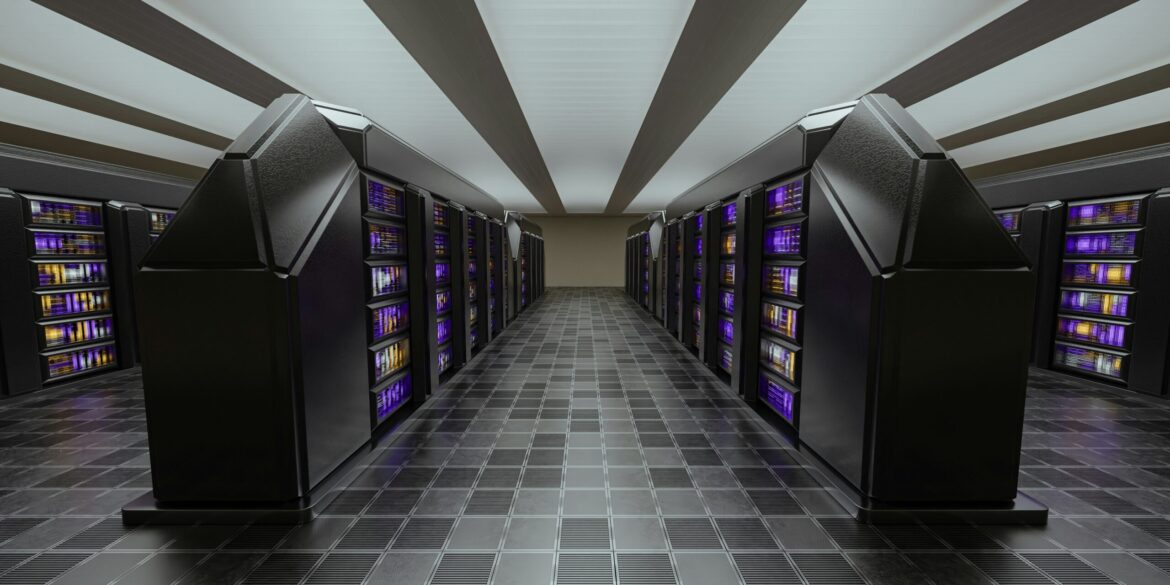The race to support artificial intelligence and cloud computing is reshaping North Texas into one of the most critical data infrastructure hubs in the country. A wave of large-scale construction projects, led by a $1 billion development in Red Oak, reflects the region’s new role at the center of the AI revolution.
The flagship project, known as GigaPop, is a collaboration between Gigabit Fiber, Lincoln Property Company, and Tradition Holdings. Once completed, the four-building campus will span 800,000 square feet on a 131-acre site just 18 miles south of Dallas. The development requires an extraordinary 540 megawatts of power capacity, underscoring the immense energy needs associated with AI-driven workloads. Construction began earlier this year with the launch of a smaller edge facility designed to serve as the project’s first operational component. What sets the GigaPop initiative apart is that it broke ground without any pre-leasing commitments—a rare move that highlights the developers’ confidence in the long-term prospects of the Dallas–Fort Worth market.
This project is part of a larger transformation that has turned the Dallas–Fort Worth metro area into the second-largest data center hub in the United States, behind only Northern Virginia. The region already has more than half a gigawatt of data center capacity delivered or under construction, with industry analysts projecting that figure could double by the end of 2026. The growth reflects a seismic shift in the digital economy, as businesses and governments alike race to secure the infrastructure necessary to handle enormous amounts of data generated by artificial intelligence, cloud services, and emerging technologies.
Read Also: https://toplistings.com/settlement-experts-pvt-ltd-your-trusted-partner-for-immigration-consultancy/
Texas offers several advantages that make it a natural magnet for this kind of development. The state boasts abundant land, relatively low energy costs, and a pro-business regulatory environment. Local governments have also been eager to attract investment, offering tax incentives and infrastructure support to data center developers. For companies seeking to build hyperscale campuses capable of serving AI applications, North Texas presents a compelling combination of affordability and connectivity, with extensive fiber networks already in place.
However, the speed of this expansion has raised concerns about sustainability. Power demand from new data centers is straining the Texas electric grid, which operates independently from the rest of the nation. Utilities have reported interconnection requests in the hundreds of gigawatts, far outpacing current capacity and raising fears about whether enough power generation can be brought online in time. Adding to the challenge is the state’s ongoing battle with water scarcity. Data centers consume significant amounts of water for cooling, and prolonged drought conditions have amplified worries that these projects could put additional stress on Texas’ already limited water resources.
The GigaPop development is not the only large-scale initiative under way. Across Texas, a string of new AI-focused projects is rising, including the massive Stargate initiative spearheaded by OpenAI, SoftBank, and Oracle. That project, centered in Abilene, envisions a network of enormous data centers designed to support AI research and deployment at unprecedented scale. Together, these developments are positioning Texas as a cornerstone of the global AI infrastructure network, with ripple effects extending far beyond technology into real estate, energy, and community planning.
For the commercial real estate sector, the implications are enormous. Land that was once considered too remote for traditional office or retail development is now being transformed into high-value industrial and technology campuses. Brokers and developers are witnessing the emergence of a new asset class, where data centers are commanding significant attention and investment. These facilities are reshaping not only the physical landscape but also the economic prospects of towns and suburbs across North Texas.
The energy sector is also being pushed into uncharted territory. Meeting the massive electricity demands of AI-ready data centers will require significant upgrades to generation and transmission infrastructure. Some industry experts argue that Texas may eventually need to explore alternative energy sources, such as modular nuclear reactors or advanced renewable solutions, to sustain the rapid pace of digital infrastructure growth. Policymakers are also being forced to weigh the trade-offs between economic development, environmental impact, and resource allocation.
The rapid rise of North Texas as a data center powerhouse marks a defining moment in the evolution of commercial real estate and technology infrastructure. While challenges remain in terms of energy, water, and sustainability, the scale of investment and the confidence shown by developers suggest that the region will continue to play a central role in powering the AI economy. As artificial intelligence becomes more deeply embedded in everyday life and business operations, the data centers of Dallas–Fort Worth will stand as some of the most important engines of this new digital era.

